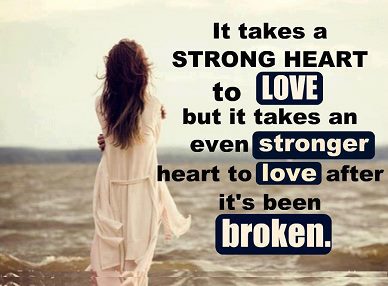“Why try? I’m tired of trying. “Why change? Nothing ever changes?” Many folks in early recovery believe NOTHING will ever get better or they believe things will get better, but only temporarily! They expect that when things are going well, something will happen and ruin everything…the bottom will fall out again and they will end up in the same position or worse. They have trouble believing recovery will make a real difference in their life.
The truth, when we are living a recovery lifestyle things get better in our life. As recovery time increases, the big picture of our life begins to come together and many good things happen. At first, one or two good things happen. When we build on these improvements, several more good things happen…then several more…and several more. Soon, we go from experiencing relief to experiencing some life satisfaction. Over time, periods of joy occur…and meaning returns to our life! The truth, things get better when we get better. Things change when we change.
When a Boulder Lands on Our Recovery Path: Things rock along okay for a while…3 months, 6 months, sometimes longer. We’re dealing with stuff that comes our way…and we’re making gains day by day…and then, something happens. Boom! It’s like a boulder falls out of the sky and smashes right into the middle of our recovery path. We’re now faced with a huge stumbling block…something big…and something hard to get around.
The boulder that slams into our recovery path may be an old friend who shows up one day, maybe someone we’ve been in love with before. We’re feeling all the fun and excitement of the good ol’ times. We’re tempted to spend time with them to relive old times and cherished memories…however, their situation or lifestyle conflicts with our recovery plan. Maybe they still drink or use drugs, or cut, or shoplift…maybe they have a bad attitude or they don’t have steady work and want to stay with us for a while…maybe they’re moody and get very critical and ugly…maybe they’ve abused us before.
The truth…life is going to happen. Difficult things will come our way and boulders will land on our recovery path. The direction our life goes depends on the choice we make when we’re faced with difficult situations. It’s like we come to a fork in the road. We can keep on the right path or we can go down the wrong road. No matter what we do, WE ALWAYS HAVE A CHOICE…to stay on the Recovery Path or to go down Relapse Road.
At this point, we’re faced with a major decision…and we have two choices. We can fight to stay on the recovery path and work to deal with the situation productively, or we can relapse into old behaviors and habits to numb-out and white-out the pain and distress. If we choose to stay on the recovery path, we’ll probably have a tough time dealing with the situation. Getting around, through, and passed a boulder takes time and we’re impatient creatures…especially when we’re expected to tolerate discomfort, inconvenience, pain, and suffering without our preferred destructive coping behaviors! We don’t want to tolerate distress and it’s very tempting to give up…and give in to old ways…the ways of relapse. We don’t want to take the time it takes…to deal with the boulder. We want the pain and discomfort to go away…fast. We don’t want the stress. We don’t want the heartache. We just want to be happy. We want life to go smooth…and when it doesn’t, we get discouraged. We want to call it quits. If life has to be like this, we don’t want any part of it.
The truth is…to maintain recovery, we must have an attitude of willingness. We must be willing to do whatever we need to do to be okay and to maintain our recovery. If we don’t do what it takes to stay on the recovery path…if we don’t try hard enough for long enough…it’s likely that we’ll relapse into our former destructive ways. Then, many of the things that became good because of our recovery will once again go bad…and that’s when we’ll walk away saying, “Why did I even try? I always relapse and things get bad again.”
The truth is…when we try…and continue to try to deal with life and all the boulders that come our way, life will get better and better. If we keep on keeping on, we’ll finally get through…passed…over…and around the boulders and obstacles in our recovery. That’s how people recover. They don’t give up…or they don’t give up for long!
Recovery is not one action. It is not something that happens in a day. It is step-by-step, decision by decision, and day after day. It is a lifestyle…and a life-long endeavor!
Why try? Because life gets good when we try and even better when we keep trying and refuse to give up! The something that happens that destroys our life is our decision to relapse. The thing that really breaks us and causes us to bottom-out emotionally and spiritually is a broken promise to ourselves…the promise we make at the start of recovery. It’s the promise that, “I’ll do whatever it takes to be okay…because I’m tired of living this way. Come hail or high water, I’ll do whatever I have to do to be okay…because I refuse to live like this anymore.”
In our recovery, there will be times when we’re holding on by just a thread…but we’re holding on. It’s only when we let go, that we fall. It’s like the saying, “You never fail until you stop trying.”
—————————————————–
Adapted from Chapter 3 “The Pathways of Recovery” from the DBT-CBT recovery workbook “Out-of-Control: A Dialectical Behavior Therapy (DBT) – Cognitive-Behavioral Therapy (CBT) Workbook for Getting Control of Our Emotions and Emotion-Driven Behavior” – Copyright 2009 by Melanie Gordon Sheets, Ph.D. (www.dbt-cbt-workbook.com)



